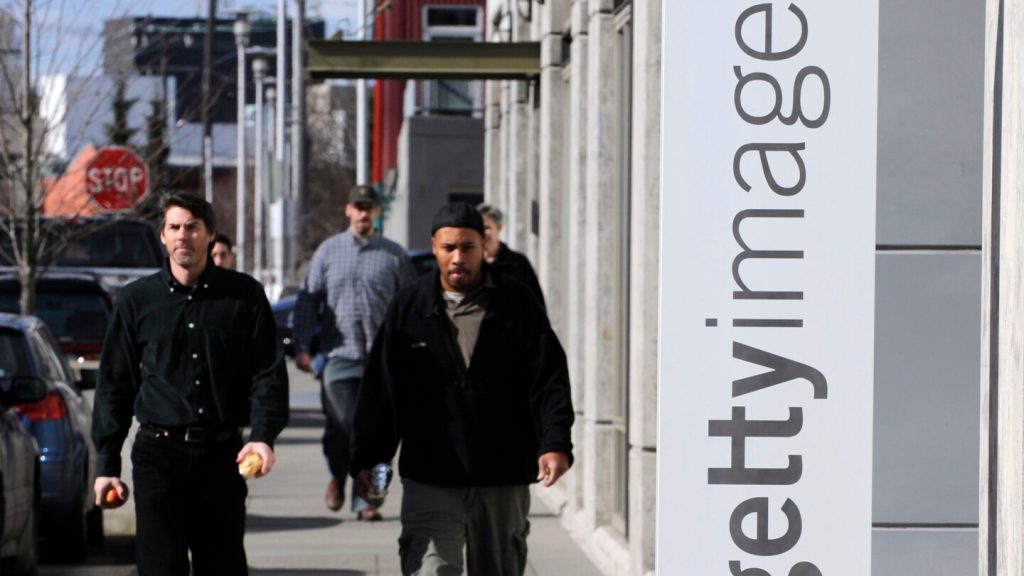Listen to the article
Stability AI Largely Prevails in UK Court Battle Against Getty Images
Artificial intelligence company Stability AI secured a significant legal victory against Getty Images on Tuesday in a closely watched intellectual property dispute at Britain’s High Court. The London-based AI firm successfully defended against most allegations in a case that has major implications for the rapidly evolving generative AI industry.
Getty Images had accused Stability AI of copyright and trademark infringement, claiming the company scraped 12 million images from its website without permission to train Stable Diffusion, a popular AI image generation tool. The Seattle-based visual media company argued this unauthorized use of its image library constituted intellectual property theft.
The case represents one of the first major legal battles in a growing wave of lawsuits targeting generative AI companies. Creative industries, including movie studios, authors, and visual artists, have increasingly challenged tech firms’ practice of using copyrighted works to train AI systems.
In her ruling, Justice Joanna Smith rejected Getty’s copyright infringement claims but did find Stability AI guilty of limited trademark infringement for instances where Getty’s watermark appeared on AI-generated images. However, she emphasized these trademark violations were not “widespread” and characterized her findings as “both historic and extremely limited in scope.”
Both companies claimed victory following the decision. Getty Images stated: “This is a significant win for intellectual property owners,” while Stability AI’s General Counsel Christian Dowell expressed satisfaction, saying, “This final ruling ultimately resolves the copyright concerns that were the core issue.”
The market responded to the news with Getty’s shares dipping 3% in pre-market trading in the United States.
The case took an interesting turn during the three-week trial in June when Getty dropped its primary copyright allegations, focusing instead on secondary infringement claims. Getty had argued that even if Stability’s AI training occurred outside the UK (on Amazon’s servers in the US), offering the Stable Diffusion service to British users constituted importing unlawful copies of its images.
Justice Smith dismissed this argument, ruling that Stable Diffusion’s AI “doesn’t store or reproduce any Copyright Works (and has never done so),” which meant no copyright infringement had occurred.
Legal experts note that Getty’s decision to abandon part of its copyright case leaves important questions unanswered. Iain Connor, an intellectual property partner at law firm Michelmores, observed: “The decision leaves the UK without a meaningful verdict on the lawfulness of an AI model’s process of learning from copyright materials.”
Justice Smith acknowledged the broader significance of the case, noting the “very real societal importance” in balancing the interests of creative and technology industries. However, she emphasized that the court could only rule on the “diminished” case that remained and couldn’t consider “issues that have been abandoned.”
This UK ruling represents just one battlefront in Getty’s legal campaign against Stability AI. The company is simultaneously pursuing a copyright infringement lawsuit in the United States, originally filed in 2023 and refiled in a San Francisco federal court in August.
The Getty-Stability AI dispute exemplifies the escalating clash between tech companies and creative industries. AI companies currently face more than 50 copyright lawsuits globally, prompting the tech industry to appeal to President Donald Trump for intervention, arguing that these legal challenges threaten innovation in artificial intelligence.
Other high-profile cases include Anthropic’s $1.5 billion settlement with authors in a class-action lawsuit, while a federal judge dismissed a similar lawsuit from 13 authors against Meta Platforms. Major entertainment companies have also entered the fray, with Warner Bros., Disney, and Universal filing separate lawsuits against image generator Midjourney for allegedly creating copyrighted characters without permission.
As AI technology continues to advance, these legal battles will likely shape how intellectual property law evolves to address the unique challenges posed by machine learning and content generation in the digital age.
Fact Checker
Verify the accuracy of this article using The Disinformation Commission analysis and real-time sources.




8 Comments
This case demonstrates the need for clearer legal guidelines around AI and copyrights. As the technology progresses, policymakers will have to weigh the rights of creators against the benefits of AI innovation.
The generative AI industry is still in its early stages, so battles like this one are likely just the beginning. Expect to see more legal challenges as the technology becomes more advanced and widespread.
While Stability AI prevailed, the court did find some trademark infringement. This suggests a middle ground may emerge, where AI systems can use copyrighted material for training but must respect certain IP protections.
The outcome highlights the tension between protecting intellectual property and enabling AI development. Courts will likely continue to grapple with these complex issues as the technology rapidly evolves.
You’re right, it’s a delicate balance. Reasonable people can disagree on where to draw the line. Time will tell how this plays out across the industry.
This is an important case that could shape the future of AI and copyright law. Stability AI’s victory is a win for innovation, but it raises questions about fair use of copyrighted material to train AI models.
This is a complex issue without easy answers. On one hand, AI needs training data to advance. On the other, artists and creators deserve to be compensated for their work. Finding the right balance will be critical.
Absolutely, this is a nuanced debate with valid arguments on both sides. Striking the right compromise between innovation and IP protection will be an ongoing challenge.